
Cucumber Castle is the seventh studio album by the Bee Gees, released in April 1970. It was produced by Barry Gibb, Maurice Gibb, and Robert Stigwood. It consists of songs from their television special of the same name, which was named after a song on their 1967 album Bee Gees' 1st. Cucumber Castle is the only Bee Gees album not to feature any recorded contributions from Robin Gibb, as he had left the group before the album was recorded.
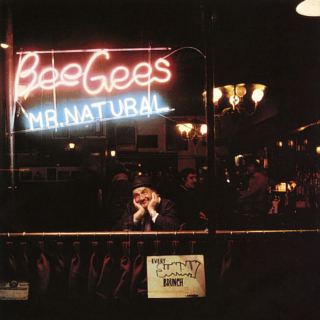
Mr. Natural is the Bee Gees' twelfth album, released in May 1974. It was the first Bee Gees release to be produced by Arif Mardin, who was partially responsible for launching the group's later major success with the follow-up album Main Course. The album's music incorporates more rhythm and blues, soul and funk and hard rock than their previous albums. The cover photograph was taken at 334 West 4th Street, Greenwich Village, New York City by Frank Moscati.
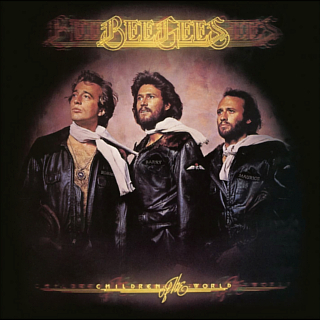
Children of the World is a 1976 album by the Bee Gees. The first single, "You Should Be Dancing", went to No. 1 in the US and Canada, and was a top ten hit in numerous other territories. It was the group's fourteenth album. The album was re-issued on CD by Reprise Records and Rhino Records in 2006. This was the first record featuring the Gibb-Galuten-Richardson production team which would have many successful collaborations in the following years.

The Bee Gees Sing and Play 14 Barry Gibb Songs is the debut studio album by the Bee Gees. Credited to Barry Gibb and the Bee Gees, it was released in November 1965 on the Australian Leedon label. It is a compilation of most of the Gibb brothers' singles that had been released over the previous three years in Australia, which accounts for the many different styles of music on it.
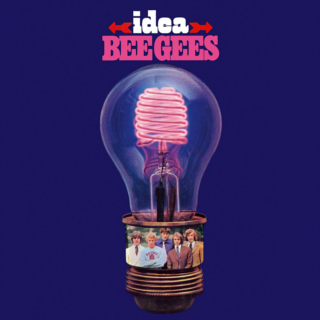
Idea is the fifth album by the Bee Gees. Released in September 1968, the album sold over a million copies worldwide. The album was issued in both mono and stereo pressings in the UK. The artwork on the Polydor release designed by Wolfgang Heilemann featured a "beehive" neon lightbulb with a group photo in its base, while the North American ATCO release designed by Klaus Voormann featured a composite head made from each band member. It was their third internationally released album - the first two albums being released only in the Australian market.
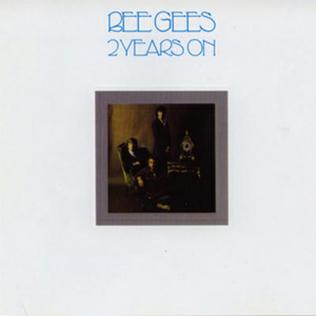
2 Years On is the eighth studio album by the Bee Gees, which reached No. 32 on the US charts. Released in 1970, the album saw the return of Robin Gibb to the group after an earlier disagreement and subsequent split following Odessa. 2 Years On was the first album with drummer Geoff Bridgford, who remained a full-time member of the group until 1972 although he was not pictured on the sleeve. The best-known track is "Lonely Days". Released as the first single by the reunited brothers, it charted high in the US, but peaked at No. 33 in the United Kingdom.

To Whom It May Concern is the tenth album by the Bee Gees. Released in October 1972, it is the follow-up to, and continues the melancholic and personal sound of, its predecessor Trafalgar. The album was recognised as "a farewell to the old Bee Gees" as the album marked the end of an era for the group in several ways: it was their last album to be recorded solely at IBC Studios, in London, their last with conductor and arranger Bill Shepherd, who had guided them since 1967, and their last under their first contract with Robert Stigwood. Some of the songs were old ones finished or rewritten for the occasion.

Life in a Tin Can is the Bee Gees' eleventh studio album, released in January 1973.

One is the Bee Gees' eighteenth studio album, released in April 1989.
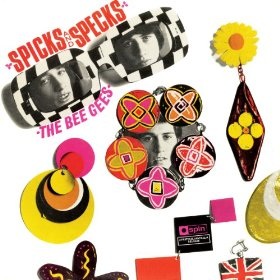
Spicks and Specks is the second studio album by the Bee Gees. It was released in November 1966, on Spin. Primarily written by Barry Gibb, the album features the first Robin Gibb composition "I Don't Know Why I Bother With Myself" and a Maurice Gibb composition "Where Are You".

Here at Last... Bee Gees... Live is the first live album by the Bee Gees. It was released in May 1977. It reached No. 8 in the US, No. 8 in Australia, No. 1 in New Zealand and No. 2 in Spain.

"The Battle of the Blue and the Grey" is a debut single by the Bee Gees, backed by "The Three Kisses of Love" and released on March 22, 1963. Like all the Bee Gees' output prior to 1967 it was only released in Australia. It was performed in Australian television Bandstand, the footage of that performance still exists. It reached #93 in Australia.

"Peace of Mind" is a song by the Bee Gees, released in Australia as their third in March 1964 and backed with "Don't Say Goodbye".
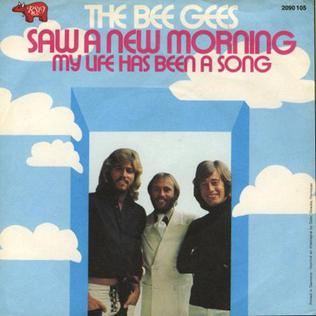
"Saw a New Morning" is the 1973 single released by the Bee Gees. It was also the group's first single released on Robert Stigwood's newly created records label RSO Records. The Bee Gees moved to Los Angeles in 1972 to record the album Life in a Tin Can which was a new direction for the group, who had been recording in England since 1967. The B-side, "My Life Has Been a Song" features lead vocal by Robin Gibb as well as Barry Gibb.
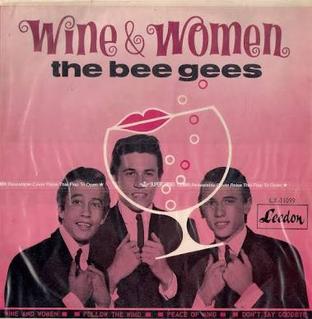
"Wine and Women" is a song written by Barry Gibb, and released by Barry Gibb and the Bee Gees in September 1965 on Leedon Records in Australia. The song's B-side was Follow the Wind. The single reached #19 in Australia, marking the Bee Gees' international chart debut. They achieved this by getting as many of their fans as possible to buy enough copies to get the song into the charts at #35 and, thus, to the attention of disc-jockeys.
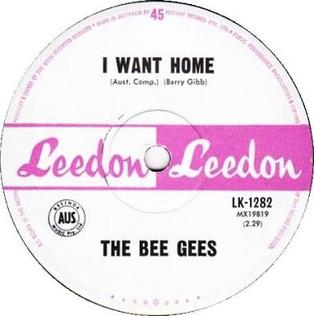
"I Want Home" is a song by the English rock band Bee Gees, written by Barry Gibb and released as a single in Australia in early 1966, backed with "Cherry Red". Their last single on Leedon had not been a hit, so the credit "Barry Gibb and the Bee Gees" used on the last several discs now reverted to simply "Bee Gees". Neither song appeared on any Bee Gees album until the 1967 compilation album, Turn Around, Look At Us, but both were featured on Brilliant From Birth the 1998 anthology of the group's Australian recordings.
"Black Diamond" is a song by the Bee Gees released on the album Odessa in 1969. The song was written by Barry, Robin & Maurice Gibb and featured lead vocals by Robin Gibb. It was included on the compilation Marley Purt Drive released in 1970.

"Lamplight" is a song by the Bee Gees, released as the B-side of "First of May", but featured as the single's A-side in Germany. It also featured on their double album Odessa in March 1969. The song was written and composed by Barry, Robin & Maurice Gibb and featured lead vocals by Robin Gibb. No other singles were released from the album, and the fact that the group's manager Robert Stigwood chose "First of May", which only featured Barry Gibb's voice for the A-side, that caused Robin to quit the group.

"You Wouldn't Know" is a song written by Barry Gibb which was recorded by the Bee Gees and released as the B-side of their version of "Everyday I Have to Cry" and later included on the album The Bee Gees Sing and Play 14 Barry Gibb Songs (1965). The album of the same name was released in Europe by Tring Records and features the Bee Gees songs from 1963 to 1966.
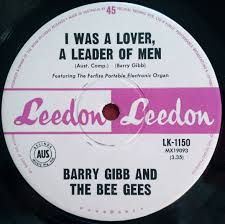
"I Was a Lover, a Leader of Men" is a single released in November 1965, recorded by the Bee Gees, written by Barry Gibb. The song was backed with "And the Children Laughing". However, it was released in the Philippines in January 1966. It is also the first track of the Bee Gees' first album, The Bee Gees Sing and Play 14 Barry Gibb Songs. This song won Barry a song-writing award.



















